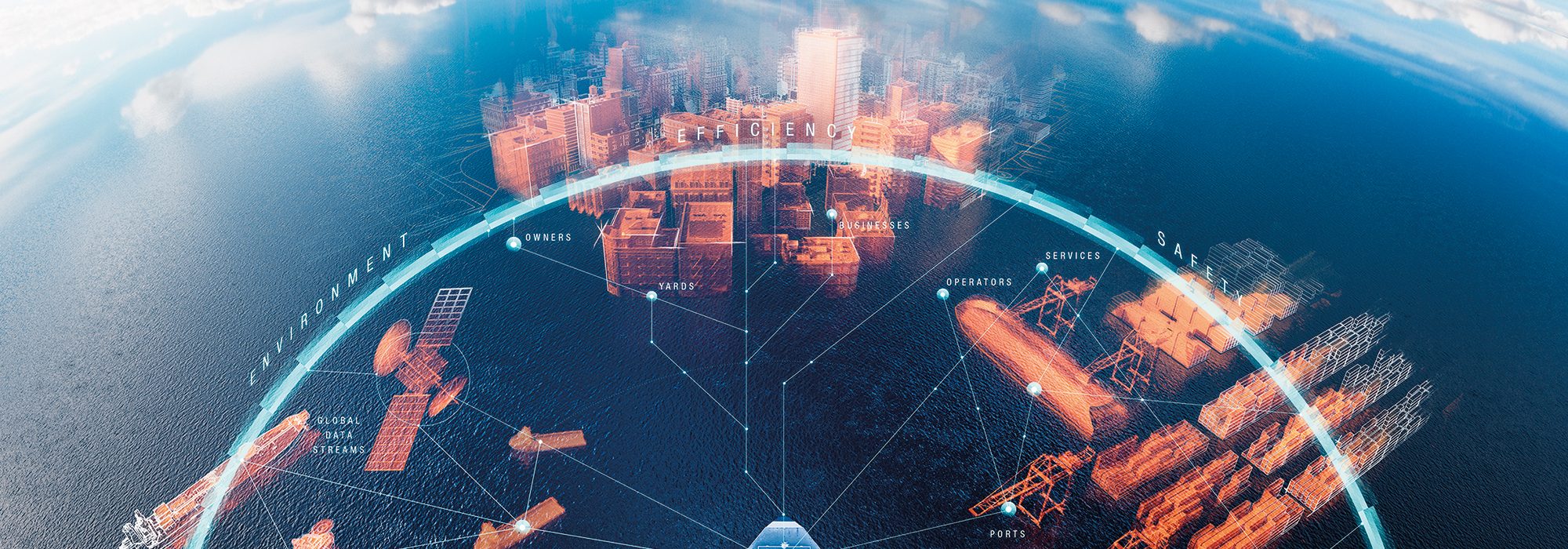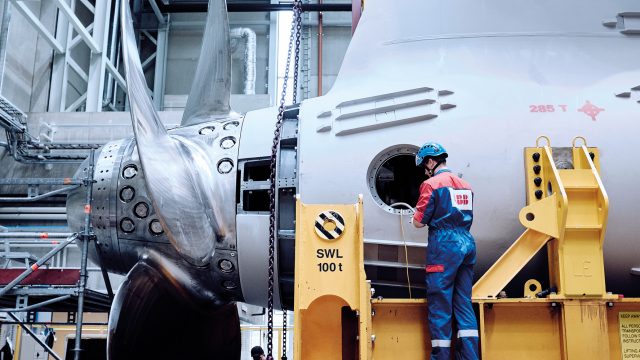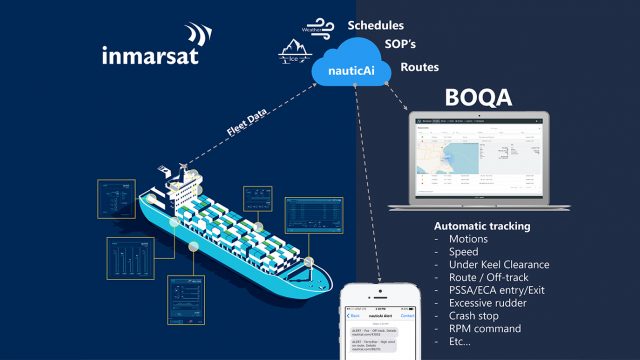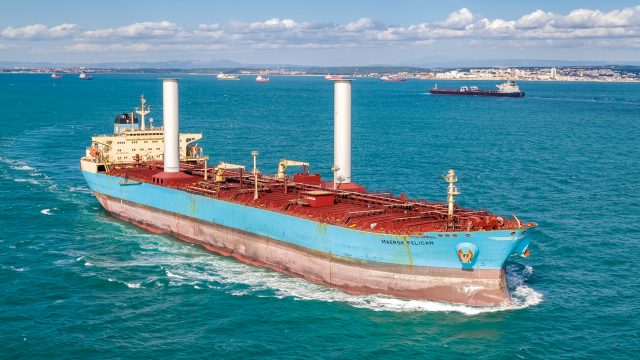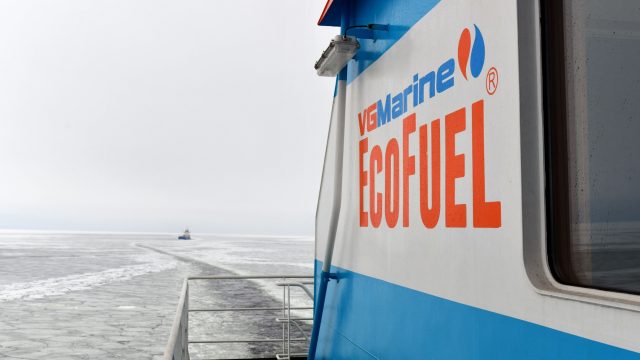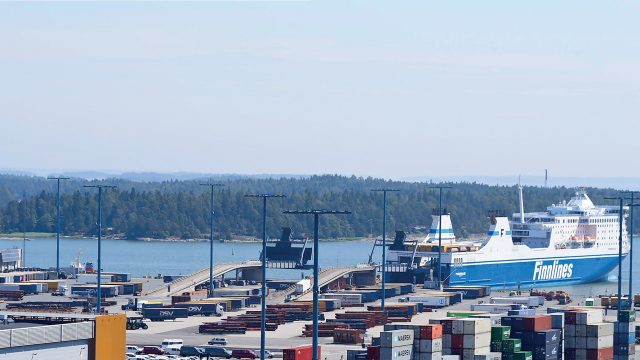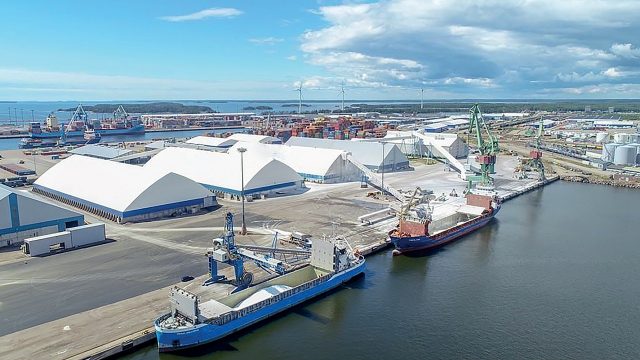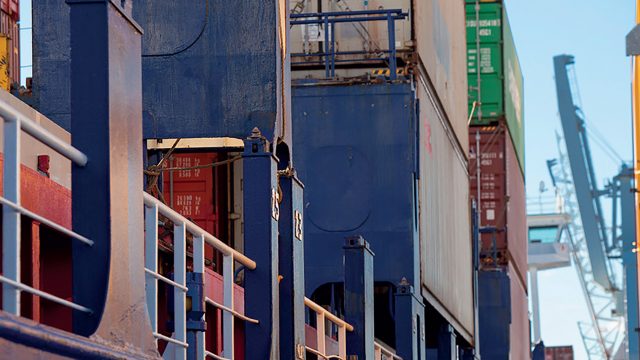Roger Holm heads up Wärtsilä Marine Power and is a member of the Group’s Board of Management. He promises to do his utmost to achieve these strategic targets.
“There are a lot of question marks surrounding the future of shipping. There’s no silver bullet solution that will solve all of its problems. However, I see technology offering a range of alternatives for smarter shipping. We no longer need to wait some of the future’s answers are already here,” says Holm.

He thinks that four major issues are affecting shipping at the moment: fuel flexibility, energy efficiency, smart solutions (connectivity) and, last but not least, safety.
“Over the past few years, global warming and the IMO’s emission limits have raised debate about fuels and energy efficiency to a new level. We’re thinking about cleaner fuels all the time.
For example, I believe in the growing use of LNG and its long future as a marine fuel, and Wärtsilä also has a great deal of expertise in this area.”
Holm says that, as a renewable fuel, biogas (LBG) will rise alongside LNG, which is a fossil fuel. And there are plenty of other interesting and effective alternatives for both energy production and shipping’s future fuel mixes – ammonia, electricity and hydrogen to name but a few.
“Engine technology itself is not the greatest challenge. Wärtsilä’s ship engines run on a variety of fuels and also utilise hybrid solutions. It will ultimately be a question of fuel prices and availability. On an industrial scale, distribution chains cannot be created quickly,” says Holm.
One good example of a hybrid solution is the energy solution being supplied by Wärtsilä Marine for m/s Aurora Botnia. This ferry is scheduled for completion in spring 2021 and will be operated by the shipping company NLC Ferry Ab Oy. Its main fuel will be LNG, but it will also be able to run on biogas. Aurora Botnia will be equipped with Wärtsilä’s 31DF dual-fuel hybrid solution and rechargeable batteries, thanks to which it will significantly lower its carbon footprint at sea and reach almost zero emissions in ports.

These features will make Aurora Botnia one of the most environmentally friendly ropax vessels in its size class in the world. The ferry will be able to accommodate 800 passengers, with 1,500 lane metres for vehicles and cargo.
In addition to marine engines, Wärtsilä Marine is one of the world leaders in scrubbers. Roger Holm is very familiar with the environmental debate surrounding scrubbers.
“Scrubbers form part of a package and constitute one good alternative among many. It’s also a question of fuel prices and many scrubbers have been installed in many old ships worldwide,” he says.
Smart Marine – a smart shipping ecosystem
The second major challenge raised by Roger Holm relates to smart ecosystems, which doesn’t just mean that vessels move more efficiently. Instead of smart vessels, the tech group is creating smarter fleets via, for example, Wärtsilä’s Fleet Operations Solutions (FOS).
Holm thinks that the various FOS technologies form one of the Group’s strategic cornerstones. One good indication of this came in November 2019, when Wärtsilä Marine and Anglo-Eastern (one of the world’s leading ship management companies, headquartered in Hong Kong) agreed on the digitalisation of a fleet of more than 600 vessels.
FOS integrates all of an individual vessel’s functions – from trimming and port arrival, to route planning and navigation – into a single data-based and optimised solution. This saves fuel and reduces emissions, as vessels will no longer sail at full speed only to end up waiting around outside the port.
“As you can see, technology already offers plenty of solutions. The Anglo-Eastern case is a good and extremely important example of ‘just-in-time’ shipping and the connectivity of its various aspects through data and digitalisation,” says Holm.
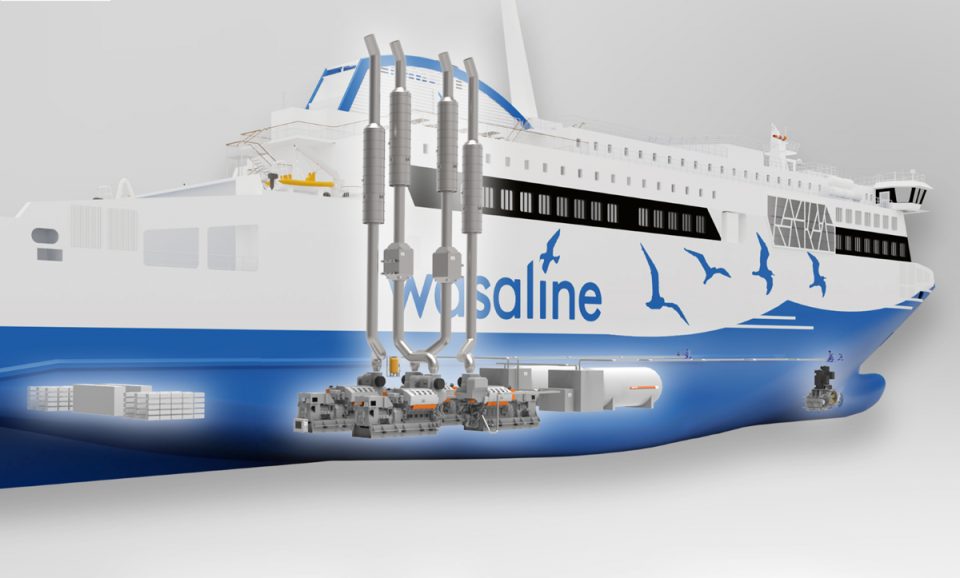
Smart shipping will also lead to self-driving, aka autonomous, vessels. The IntelliTug project is Wärtsilä’s first ‘win’ in this field. A dynamic positioning system was installed on PSA Polaris, a tug belonging to the Singaporean tug company PSA Marine, and successful tests were carried out in March in Southeast Asian waters.
“Singapore’s busy port is a really good test site for us. The tug has performed as expected during the test drives, in both automatic and manual mode. With the aid of automation and artificial intelligence, the tug obeys many optimised parameters while waiting and only moves to a new location after receiving the command to do so,” says Holm.
He emphasises that an autonomous vessel is not the same thing as an unmanned vessel.
“The idea is not to remove the captain or the crew, but rather to use technology to assist them in all of their routines,” he says.
In 2018, Wärtsilä Marine took a major step towards becoming the world leader in developing autonomous vessels by acquiring the UK software company Transas.
“Through Transas, we have gained a great deal of expertise in shipping software, and this can be seen in both the Anglo-Eastern and PSA Marine cases.”
Wärtsilä moves to new premises in Vaasa
Wärtsilä Smart Technology Hub – a tech cluster and international campus for industry actors that is currently being established in Vaasa – is an integral part of the technology group’s R&D functions.
The Vaasa research centre has attracted a great deal of interest both in Finland and abroad. So much so, that more than 200 parties have already registered for the open innovation platform before it has even been launched.
“It’s based on a new approach in which innovations are flexibly shared between partners, and at different times if necessary. We’ve launched the initial development of this model with a smaller group. The Smart Technology Hub is expected to start its operation by the end of 2021,” says Holm.
He says that the technology hub’s location in Vaskiluoto, Vaasa is good by virtue of its proximity to the harbour.
“Almost every day, we’ll be able to look out of the window and see one of our clients’ hybrid vessels, the Aurora Botnia, sailing between Finland and Sweden. This vessel will act as a floating test laboratory linking to the Smart Technology Hub, which will allow real time monitoring and management of the vessel. This will improve efficiency and allow for further R&D of solutions that can help the marine industry meet the targets and environmental requirements in the future,” says Roger Holm.
Increased agility
In March 2020, Wärtsilä announced a new organisational model that will accelerate customer service and make it more agile, while also
highlighting the important role played by shipping within the Group. In July 2020 Wärtsilä Marine’s operations have been divided into
three business areas: Marine Power, Marine Systems and Voyage. Marine Power focus on engine and propulsion solutions. Marine
Systems provides gas solutions, exhaust gas treatment, electrical systems for shipping, seals and bearings. Voyage handles automation
and navigation solutions, simulation and training solutions, vessel operation, and vessel traffic control solutions.
Roger Holm is leading the Marine Power business. The heads of the two other business areas are – Tamara de Gruyter, President
of Marine Systems, and Sean Fernback, President of Voyage. All three are members of the Board of Management.
“We have the most extensive offering for the shipping market. Creating three separate packages gives us a stronger grasp of each
individual market’s needs, which will help us to realise our Vision of a Smart Marine Ecosystem more quickly,” says Jaakko Eskola,
the Wärtsilä Group’s President & CEO.

